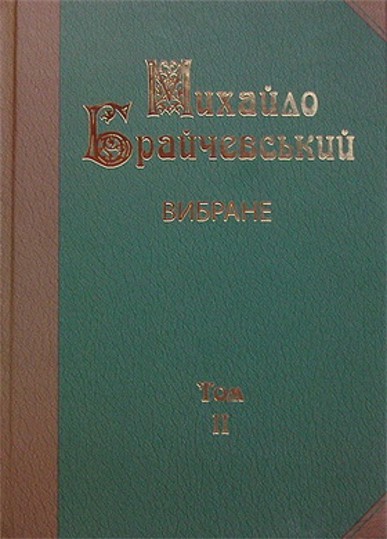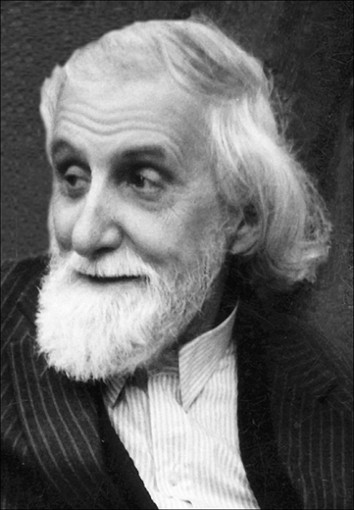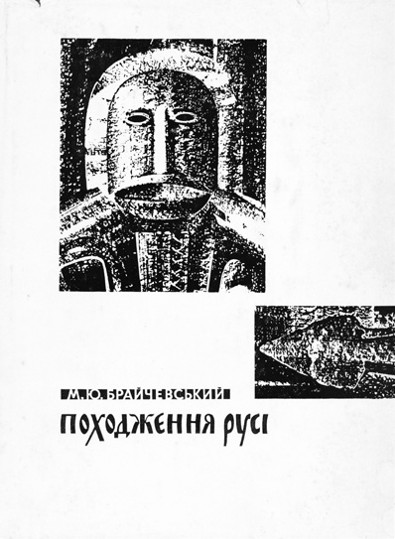Braichevsky, Mykhailo
Braichevsky, Mykhailo [Брайчевський, Михайло; Brajčevs'kyj, Myxajlo], b 6 September 1924 in Kyiv, d 23 October 2001 in Kyiv. Archeologist and historian. Braichevsky studied at Kyiv University (1944–8) and then became an associate of the Institute of Archeology of the Academy of Sciences of the Ukrainian SSR. During the 1950s he took part in numerous archeological expeditions, obtained his candidate’s degree (1955) from the Institute of Material Culture in Moscow, and published Ryms’ka moneta na terytoriï Ukraïny (Roman Coinage on the Territory of Ukraine, 1959). He began to work for Institute of History of the Academy of Sciences of the Ukrainian SSR in 1960 and over the next few years produced some of his most important works, primarily on the early history of Kyiv and Kyivan Rus’, including Koly i iak vynyk Kyïv (When and How was Kyiv Formed, 1963), Bilia dzherel slov’ians’koï derzhavnosty (At the Sources of Slavic Statehood, 1964), and the fundamental study Pokhodzhennia Rusi (The Origin of Rus’, 1968) which argued against the official Soviet view of the common origins of the Ukrainian, Russian, and Belarusian peoples. His greatest renown, however, came from a lengthy article he wrote in 1966 for publication in Ukraïns’kyi istorychnyi zhurnal. Entitled ‘Pryiednannia chy vozz'iednannia’ (Annexation or Reunification), it was a fundamental critique of the official Soviet interpretation of the Pereiaslav Treaty of 1654 (annunciated just over a decade earlier during the commemoration of the treaty’s 300th anniversary) and, by extension, the contemporary framework for understanding the history of relations between Ukraine and Russia. The study was not printed and Braichevsky was reprimanded for his views. In 1968 Braichevsky signed a collective letter of 138 Ukrainian intellectuals to the Soviet leaders protesting the political trials of dissidents in Ukraine. For this action he was dismissed from the Institute of History. He managed to obtain a position at the Institute of Archeology in 1970 (then headed by Fedir Shevchenko), but was dismissed in 1972 during a purge of Ukrainophile intellectuals.
Meanwhile, Braichevsky’s ‘Annexation or Reunification’ article had begun to circulate as samvydav. It caused a sensation (although not to the same degree as Ivan Dziuba’s Internationalism or Russification?, to which it is sometimes compared). The clarity of its argumentation, the directness of its attack on the existing norms of ‘official’ history, and the centrality of the issue it addresses render it an important document in Ukrainian intellectual history. It was finally published in 1972 in Canada and then in 1974 in English translation in Munich; it appeared in Ukraine only in 1990. During this period, however, Braichevsky remained banished from academia in Ukraine. He nevertheless continued his scholarly research and writing and developed his interests in painting and poetry.
At the end of the 1970s Braichevsky made a tenuous return to academic life in Soviet Ukraine, obtaining a position at the Institute of Archeology of the Academy of Sciences of the Ukrainian SSR and once more having his writings published. In the more relaxed political climate of the latter 1980s Braichevsky’s work again flourished: he published his Utverdzhennia khrystyianstva na Rusi (The Consolidation of Christianity in Rus’) in 1988 and in 1989 he received a long-overdue recognition as a doctor of historical science. He also threw himself into civic life as a strong supporter of the Popular Movement of Ukraine and an inveterate publicist. In the first half of the 1990s he published extensively (including historical textbooks in 1993 and 1995) before failing health began to limit his capacities. A festschrift in his honor, Starozhytnosti Rusi-Ukraïny (Antiquities of Rus’-Ukraine), was published in 1994 and in 1999 a two-volume selection of his key works (together with a bibliography), Vybrane (u dvokh tomakh) (Selected Works [in Two Volumes]), were republished in honor of his 75th birthday. A collection of essays about various aspects of Braichevsky’s scholarship mixed with some of his own writings appeared posthumously in 2002 as Mykhailo Braichevs’kyi: Vchenyi is osobystist’ (Mykhailo Braichevsky: Scholar and Individual). During his lifetime Braichevsky wrote approximately 500 scholarly works, including ten monographs.
[This article was updated in 2005.]
.jpg)



.jpg)